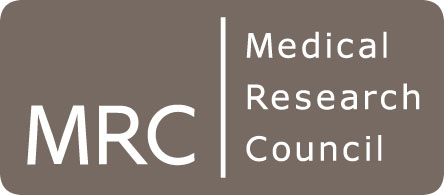What is METADAC?
The METADAC infrastructure (Managing Ethico-social, Technical and Administrative issues in Data ACcess) hosts a data access committee (the METADAC Access Committee) which governs access to the complex and sensitive genotypic and phenotypic data and biological samples generated by several longitudinal studies in the UK and acts as an advice and appeals committee to one other. METADAC is the only independent, multi-study UK data and sample access infrastructure. METADAC provides access governance for the following studies:
- 1970 birth cohort (BCS70)
- English Longitudinal Study of Ageing (ELSA)
- IMAGINE ID
- Millennium Cohort Study (MCS)
- 1958 Birth Cohort (1958 BC)
- Natsal
- Understanding Society (UKHLS)
- UK Twins (Advisory and Appeals)
The Committee develops, implements and maintains all administrative and technical activities as well as policies needed to provide governance for access to the complex and sensitive biomedical and social data and samples. METADAC also has a wider remit to engage with potential researchers to promote use of the data, review current issues affecting data access and promote good practice and effective policies.
The METADAC also provides an expert forum for discussion of new, complex or difficult issues in data governance. The Twins UK study has a separate application approval route but can refer applications to METADAC for discussion should any issues arise that require expert discussion.
Complex decisions about data access are not simply ethical or technical; they go to the heart of the politics of scientific research.
User Engagement and Training
METADAC works iteratively with applicants to make their applications ready for approval and provides guidance, training and discussion on how to write a strong application that meets all technical and ethical requirements for approval.
Iterative work with METADAC applicants on societal and participant interests in their research and on writing project summaries for these groups is a core part of METADAC’s engagement with researchers and constantly informs METADAC’s guidance on the skill of presenting a proposal in plain language that participants and the public can engage with.
If you would like to learn more about METADAC and data governance please read our article here.
Criteria for accessing data and bio-samples
The METADAC data access committee considers the more sensitive access decisions for several longitudinal studies: ELSA, Understanding Society, and the 1958, 1970 and Millennium Birth Cohorts, Natsal and IMAGINE ID. Other studies are likely to be added in the future.
New applications must be submitted at least 10 working days in advance of the METADAC meeting. Deadlines are published online at METADAC-meeting-dates. The Technical Review Team will identify the basic technical and scientific questions and highlight any problems, if possible resolving them before the METADAC meets. The METADAC committee will discuss all applications and decide whether to approve, seek further information, request revisions or to reject the application. Approval may be subject to conditions.
The METADAC asseses whether applications meet the following criteria:-
[All criteria must be met if research proposal is to be approved]
- The application has been submitted by bona fide researchers with sufficient experience to carry out the work proposed.
- The application meets the criteria on the application form for seniority of the principal applicant.
- There is negligible risk that the application will produce information that may allow individual study participants to be identified.
- The application does not violate (or potentially violate) any of the consent given by the participants or their guardians.
- The application does not violate (or potentially violate) any of the ethical permissions granted to the study* from which data or samples are requested.
- The application addresses topics that fall within the acknowledged remit of the study, as understood by participants.
- There is no substantive risk that the application might upset or alienate study members or of reducing their willingness to continue as participants.
- There is no substantive risk that the application might harm individuals in the study, or the study as a whole.
- Includes a good quality plain language summary – following the METADAC guidance.
- The application does not require access to a depletable finite resource (whole blood extracted DNA, blood, saliva and urine).
OR
If the application does require access to samples, then the criteria in the METADAC biosample strategy guidelines have been met. Applications for finite bio-samples are seen as being in competition with other potential research projects**, and the quality of the science is reviewed formally (if necessary using independent external reviewers). The METADAC biosample strategy guidelines contain more detail of the process.
* ‘Study’ refers to one of the longitudinal studies under METADAC governance.
** ‘Project’ refers to projects proposed in data/samples applications to METADAC.
Expert governance and policy implementation forum
The METADAC also provides an expert forum for discussion of new, complex or difficult issues in data governance issues. In addition to the studies mentioned above, the TwinsUK study has an observer on the METADAC committee and can refer applications to METADAC for discussion should any issues arise that require expert discussion. The METADAC has a wider responsibility for reviewing and developing the implementation of emerging policies to reflect rapid changes in the scientific, social and ethico-legal underpinning of this important area of bioscience, as well as considering best practice in the practical and administrative aspects of Data Governance.
Download METADAC’s terms of reference (pdf, 121kb)
METADAC is funded jointly by MRC, Wellcome Trust and ESRC.


![]()

Recent Comments